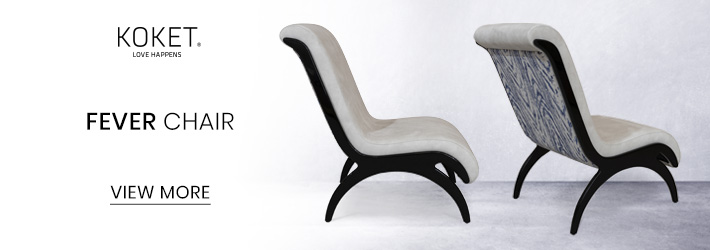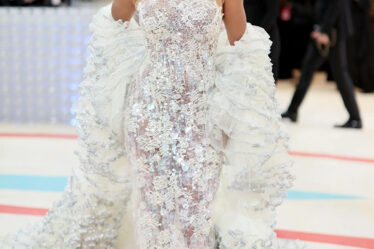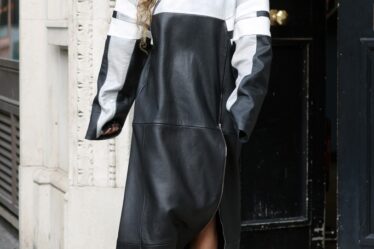
What would blockchain and fashion have in common? Usually, not much, as these industries focus on different target audiences, products and services. However, one thing leads to another, and we’ve been bombarded with luxury fashion brands developing their NFTs and widely adopting tech-wear.
But besides the aesthetics, emerging technologies can improve the supply chain and help the industry grow as a sustainable ecosystem. For instance, leveraging blockchain in luxury retail offers transparency and traceability, as well as more accessible transaction speeds with the ETH coin price. On the other hand, artificial intelligence, the technology that took the world by storm, can handle marketing and improve marketing based on specific algorithms.
The fusion of these different sectors creates a new area of development by challenging fashion to express itself beyond normal boundaries and blockchain to expand in industries where it can bring change. Here’s how they blend together perfectly.
Blockchain In Luxury Retail―Improved Customer Experience and Data Management
Luxury retail is a separate component of fashion. Manufacturing, supply, and marketing are very different from those of fast fashion. However, that doesn’t mean it’s not prone to risks, such as data breaches and inefficient systems, because it still leverages centralized systems.
That’s why blockchain can step in and enhance productivity by being transparent and proving authenticity to the end consumer, tracing products, and tokenizing luxury items. In this industry, blockchain can:
- Support sustainability measures by tracking luxury products throughout their lifecycle, allowing insight into how can ethical production and consumption be settled;
- Improve customer experience by offering customers the possibility to see the sourcing of their items based on tokenization principles;
- Ensure the authenticity of luxurious items through one-to-one-counterfeit proof technology to verify and transfer them quickly;
- Develop consumer trust by providing an immutable record of the clothes’ supply chain available to all customers;
Three Use Cases of Blockchain In Luxury Retail
While exploring blockchain use cases in luxury brands is still under development, there are three use cases of the technology in the industry. First, the digitization of assets, also known as digital twins, ensures no luxury pieces are prone to counterfeiting, which usually leads to massive financial losses annually. The digital twin on the blockchain is created through IoT or RFID tags or QR codes that allow their tracking to be more efficient.
Secondly, blockchains can help luxury brand manage their raw material supply transparently to ensure their products align with customers’ values. Therefore, companies can source their products better, as it’ll be easier to track unauthorized or unethical behaviors.
Finally, blockchain can also contribute to loyalty programs, which are essential in most luxury brands. Since blockchain makes tokenization possible, luxury brands can better develop their loyalty programs by creating digital assets of unique access for loyal customers.
Challenges to Consider
Regardless of how good it sounds, introducing blockchain in fashion luxury retail might be difficult due to the technological complexity of adopting such systems. Integrating a blockchain in fashion requires an entire infrastructure change and can impact workflow. At the same time, navigating the regulatory and legal uncertainties can pose several challenges regarding jurisdictions.
Artificial Intelligence Can Make Luxury Retail Experiences Superior
Artificial Intelligence has been on the rise in recent years, but it peaked when ChatGPT was released, changing the perspective on how AI can contribute to society. In luxury retail, AI approaches marketing and customer experience through automatization, as it can gather insights into the luxury brand and forecast trends based on current customer behavior.
An AI marketing strategy can help brands achieve their goals faster. For instance, AI can generate content based on specific algorithms that appeal to the audience, which it can also segment adequately to ensure accuracy. AI is excellent for programming advertising campaigns and handling SEO. At the same time, AI can serve as a customer service chatbot that can take all urgent inquiries and provide all the necessary information required by customers.
Hence, AI in marketing can lead to faster decision-making, improved CRM capabilities, and superior data customer insights.
Areas Where AI Can Help Luxury Retail
Currently, AI is used in luxury brands to evaluate sales and develop the e-commerce sector. This could be taken to the next level by tracking in-store and online shopping sales to offer a complete image of the company’s capabilities. This means creating an app through which users receive rewards when they provide purchasing information so AI can provide streamlining insights for the order management process to evolve.
AI is also helpful in retail marketing since it can create the perfect image of the customer based on their information. Tracking customer preferences offers the chance to improve marketing, which can be easily automatized.
Finally, when it comes to the pricing of luxury goods, we know they can be pretty exorbitant, as they appeal to a specific customer audience. However, pricing them in accordance with the value is essential even for luxury-seeking clients because it offers trust and sets the right brand image. Through AI systems, the price of a luxury item can be changed according to trends, demands and competition.
Still, It’s Not That Straightforward
Leveraging AI could be limited for the moment, considering data privacy concerns that have arisen since its emergence. At the same time, we’ve discovered that AI can be based in relation to the information provided to it, which may hinder its objective decision-making for forecasting.
Finally, employment in luxury retail isn’t that high, so job displacement can occur, as AI can be considered to do all the essential tasks. Hence, it cannot be introduced without mitigating and addressing these concerns.
Wrapping Up
Luxury retail is a niche sector in fashion, but its contribution to the economy is essential for the industry to continue flourishing. As crucial as it is, luxury fashion needs some technological development to face the increasing demand for new pieces, so blockchain and AI can contribute to analyzing customer data and provide improved insights, as well as ensure superior marketing strategies through automatization.
Feature Image by Freepik
More to Love!



